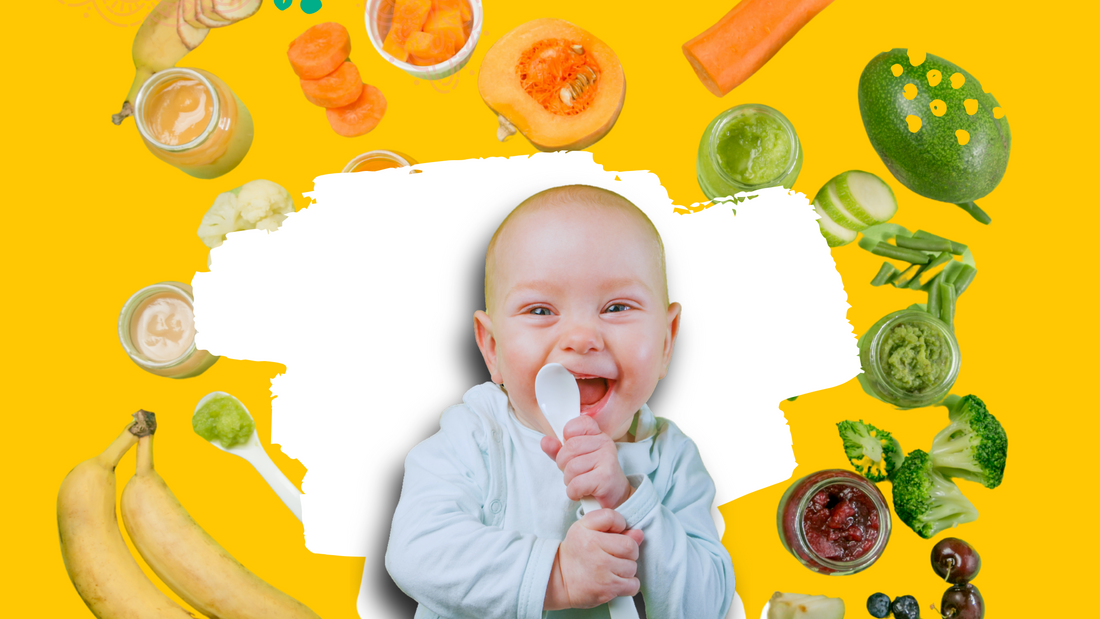Parenthood comes with countless decisions, and choosing what to feed your baby is one of the most important. If you’ve recently decided to embrace organic foods for your family, you might be considering organic options for your little one. Starting with organic baby food is a great way to ensure your child gets the best start in life.
This guide will help you understand the benefits of organic baby food, where to find it, and how to prepare it yourself.
The Benefits of Organic Baby Food
Organic foods are grown without synthetic pesticides, fertilizers, or genetically modified organisms (GMOs). For babies and young children, whose bodies are still developing, these chemical-free foods are especially beneficial. Many parents and healthcare providers believe that avoiding potentially harmful substances in food can support healthier growth and development, though more scientific research is still emerging.
In addition to being free of chemicals, organic baby foods are typically made without added sugars, artificial flavors, or preservatives, making them a natural and wholesome option for your baby’s diet.
Where to Buy Organic Baby Food
You have two main options for buying organic baby food: shopping locally or online. Each has its advantages, and your choice will depend on convenience and the variety you’re looking for.
Shopping Locally
Many grocery stores now carry a selection of organic baby foods, often found in the baby food aisle. You’ll find jarred purees, pouches, and snacks labeled as organic. Look for the USDA Organic seal, which certifies that the food meets strict organic standards.
Local natural food stores or co-ops are also excellent places to shop for organic baby food. These stores often carry a wider variety of brands and flavors, giving you more options to choose from.
Shopping Online
If you’re looking for more variety or want to compare prices easily, shopping online is a convenient option. Websites like Amazon, Earth’s Best Organic, and Once Upon a Farm offer a broad range of organic baby food options. Many of these sites even provide subscription services, ensuring you never run out of your baby’s favorite foods.
Some online retailers sell frozen organic baby food, like Baby Cubes. These pre-portioned cubes of organic fruits and vegetables are easy to store and use, reducing the number of trips to the store or online orders you need to make.
When shopping online, remember to check for certifications and read customer reviews to ensure quality. Also, keep in mind that a credit or debit card is typically required for online purchases.
Making Your Own Organic Baby Food
If you’re concerned about costs or want complete control over what your baby eats, making your own organic baby food at home is an excellent option. It’s simpler than you might think!
Start by purchasing organic fruits and vegetables from your local grocery store, farmers’ market, or co-op. Popular choices for homemade baby food include sweet potatoes, carrots, peas, apples, and bananas.
Here’s a simple method to get started:
- Wash and peel the produce thoroughly.
- Steam or bake the fruits and vegetables until they are soft.
- Puree the cooked produce in a blender or food processor until smooth. Add water, breast milk, or formula to adjust the consistency if needed.
- Store the purees in BPA-free containers or freeze them in ice cube trays for easy portioning.
Homemade organic baby food not only saves money but also ensures your baby gets fresh and nutrient-rich meals.
A Final Note
Feeding your baby organic food is a thoughtful decision that prioritizes their health and well-being. Whether you choose to buy pre-made organic baby food or make your own, you’re giving your child a strong nutritional foundation.
The options for organic baby food are expanding every year, making it easier than ever for parents to find convenient, healthy, and delicious meals for their little ones. With a bit of planning, you can ensure your baby gets the best start on their journey toward a healthy and happy life.
